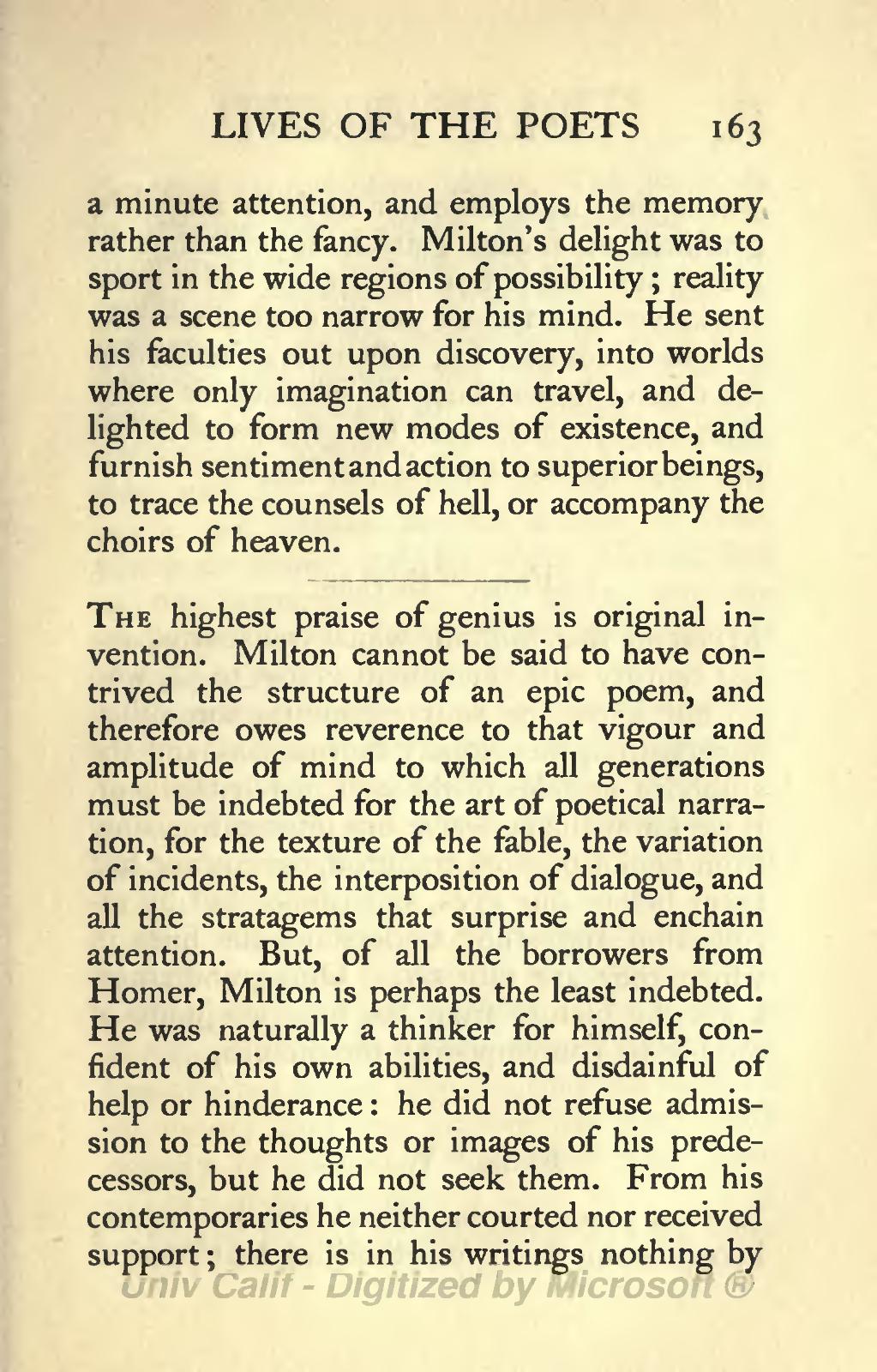a minute attention, and employs the memory rather than the fancy. Milton's delight was to sport in the wide regions of possibility; reality was a scene too narrow for his mind. He sent his faculties out upon discovery, into worlds where only imagination can travel, and delighted to form new modes of existence, and furnish sentiment and action to superior beings, to trace the counsels of hell, or accompany the choirs of heaven.
The highest praise of genius is original invention. Milton cannot be said to have contrived the structure of an epic poem, and therefore owes reverence to that vigour and amplitude of mind to which all generations must be indebted for the art of poetical narration, for the texture of the fable, the variation of incidents, the interposition of dialogue, and all the stratagems that surprise and enchain attention. But, of all the borrowers from Homer, Milton is perhaps the least indebted. He was naturally a thinker for himself, confident of his own abilities, and disdainful of help or hinderance: he did not refuse admission to the thoughts or images of his predecessors, but he did not seek them. From his contemporaries he neither courted nor received support; there is in his writings nothing by
